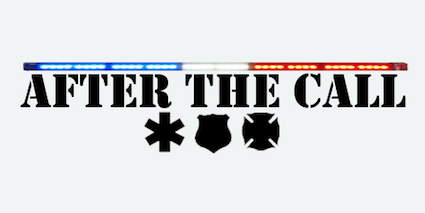Experience and perspective are two things that will forever change your view of the world. Here’s a silly example – when in high school, I liked to dabble with skateboarding. Was never any good, but the point is I looked at stairs differently after that. No longer were they a monotonous geometric means of access, but a brilliant and beautiful transition. That view, despite next to never actually doing anything on them, still comes to me at times. Like spontaneous recovery of a skill-set long put away. Experience and perspective have that effect on us, doesn’t it?
As a former first responder, death has certainly made this transition. We don’t often speak about death, except for when we hear other’s stories of struggles; inevitably these calls are the apex. We don’t, however, often talk about our perspective and experience in the realm of death. While I certainly believe this to be more broadly true, I’ll speak for myself. No death I’ve been at was traumatic for me. And that’s the catch, about this fickle way we are looking at the impact of the role. Death, for me, was not so often as a large metropolis. But, it still visited me often enough.
I’ve been on the chest of someone at death’s door. Most responders have, at some point. The pinnacle between life and death is the rhythmic manual pumping of their heart by hand. I felt the bones, protective as they were designed to be, move and shake under the conscious pressure giving way to the reason someone would exert that much force on another human. People talk of flow. When I reflect on those times that I worked someone, I can say that I’ve experience that. Death often “happens” to others – first responders are in the career of fighting against that.
I see death through perspective and experience, its finality, its devastation, and its relief. Through the memories flooded with adrenaline, I’ve watch loved ones say good bye – moved from bed to stretcher. This transition is never “clean”. There’s something unclinical about it. Something about this necessary service to try and beat nature, often pushes against our views or hopes for how something would go. These calls were disturbing in some way or another. We’re working with a population that few do – the dying- and yet, never really received any training for it. Our training wasn’t in dealing with the dying it was in preventing the death to begin with. But, work a cold chest and you, certainly, are now in the business of death.
I’ve also seen the moment when death is declared. This is a haunting experience, more so than any of the accidents and major biological trauma I’ve seen suffered onto someone. I remember vividly the smells, the way the room looked, the position and placement. Shifting on and off the chest with another firefighter, I constantly remember looking at the medic’s EKG with every compression, trying to ensure a sufficient enough spike. I remember one medic on the phone with the hospital the other calmly correcting and instructing and guiding us, while the wife, surrounded by first responders, paced in utter horror and desperation.
And then it stopped.
I can’t explain to you the oddness in this transition. There was something wrong, morally or ethically or something else I can’t explain, about getting up and leaving. And, yet, leaving is what we do. We too step into death, but only for a moment; a single, fleeting, fraction of a moment. Then we walk back into life, outside, and back into our trucks.
This reflection was sparked by a clinical conversation. The acknowledgement that despite dealing with folks who have experienced more than most do in a lifetime, that we, as therapists, may shy from talks of death. And this, due maybe to our uncomfortability of death, automatically prescribe its overwhelming and far-reaching impact on first responders we may see come sit in our chair. They may want to focus on a call that, for them in their own individual and meaningful way, has been hurting them. And, we could wrongly and incorrectly prescribe all the other deaths they have seen as problems in themselves to face.
A gentle reminder to simply meet them where they are hurt, while some calls the death will be the issue at others it will be the compounding factor, because it simply elicits emotions connected to the problem at hand. Fear will come to them, quickly, that they too may have something like PTSD. Of course, that’s a risk, but not the only factor. Calmly guiding them to explore other options helps squash stigma and re-align their focus. So often I’ve diffused panic and confusion, by simple explaining how utterly normal their initial experiences are.
But, our fear of talking freely about the death hinders another conversation. How we want to live. How can we speak with any conviction about the life we want to live if we haven’t a stitch of courage to talk about how we want to die? Life is about the opposites – we need to experience hate to love, grieve to be happy, rage to be content. Without the opposite, we live mere shells of the other. Those experiences are hints or shadows. They feel real enough, but because we don’t know any other experience.
We haven’t yet felt the shaping force of experience and perspective.

